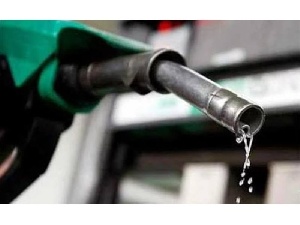- Home - News
- Elections 2024
- News Archive
- Crime & Punishment
- Politics
- Regional
- Editorial
- Health
- Ghanaians Abroad
- Tabloid
- Africa
- Religion
- Photo Archives
- Press Release
General News of Wednesday, 4 June 2025
Source: www.ghanawebbers.com
Government Imposes GH¢1 Levy On Fuel To Solve Dumsor
Fuel Levy Imposed
The government is introducing a GH¢1.00 levy on fuel prices. This aims to raise revenue for the energy sector crisis.
As of March, the energy sector debt stands at US$3.1 billion. The government needs an additional US$1.2 billion this year for essential fuels.
The Energy Sector Levy (Amendment) Bill was presented in Parliament on June 3, 2025. The Minister for Finance laid it under a certificate of urgency.
After the first reading, the bill was sent to the Finance Committee. It bypassed normal processes and could be passed in one day.
The committee's report was submitted later that afternoon. The Energy Sector Levy (Amendment) Bill was passed into law yesterday.
Objective of the Bill
Finance Minister Dr. Cassiel Ato Forson explained the bill's purpose in Parliament. He stated it aims to raise revenue for energy sector shortfalls and reduce legacy debt.
He warned that the power sector poses significant economic risks to the nation. If not addressed, it could lead to a major crisis.
Dr. Ato Forson highlighted enormous challenges in the energy sector, including debt and inefficiencies. As of March 2025, total energy sector debt reached US$3.1 billion.
This includes amounts owed to independent power producers and fuel suppliers.
Non-Payment Issues
The Minister noted non-payment of bills affected World Bank guarantees last year. The government must find an additional US$632 million to restore these guarantees.
He emphasized that at least US$3.7 billion is needed to clear overall energy debts.
To fund power sector needs, he proposed increasing ex-pump prices for petrol and diesel.
However, he assured consumers would not pay extra due to gains from a strong cedi performance.
Purpose of the Levy
The minister stated that this levy will provide dedicated funding for the power sector. Proceeds will be used for procuring essential fuels for electricity generation.
He believes this move will help ensure stable electricity supply in Ghana.
Current electricity tariffs do not cover fuel costs used in power generation.
Dr. Ato Forson stressed finding balance between stable supply and financial sustainability in the sector through this modest increment in levies.
Debate Over E-Levy
Minority Leader Alexander Afenyo-Markin commented on what he called an "E-levy." He argued that while one E-levy was abolished, another is being introduced under a different name.
He questioned how new levies could be justified when previous promises were made against them.
In contrast, Majority Leader Mahama Agariga disagreed with this characterization of the bill as an E-levy.
He clarified that it is specifically about raising funds through a GH¢1 levy per litre of fuel to end dumsor (power outages).











